1960s American Quotes & Sayings
Enjoy reading and share 37 famous quotes about 1960s American with everyone.
Top 1960s American Quotes
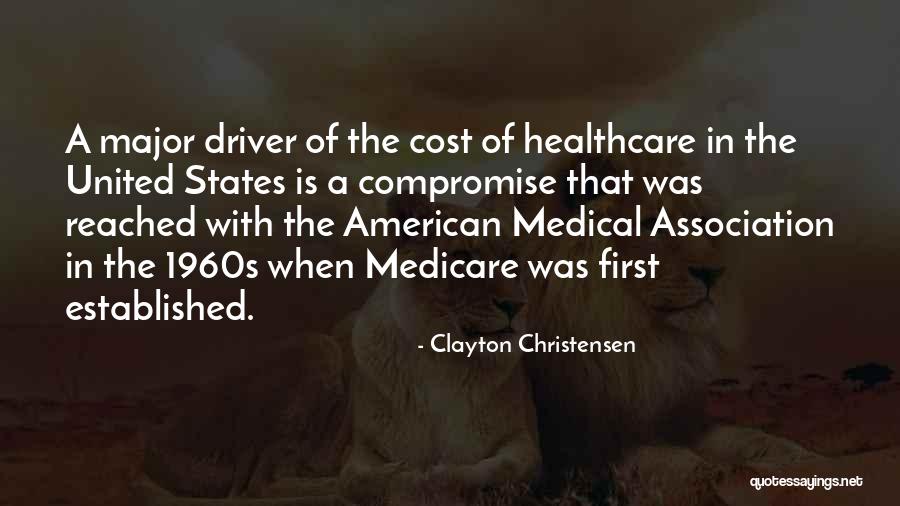
A major driver of the cost of healthcare in the United States is a compromise that was reached with the American Medical Association in the 1960s when Medicare was first established. — Clayton Christensen
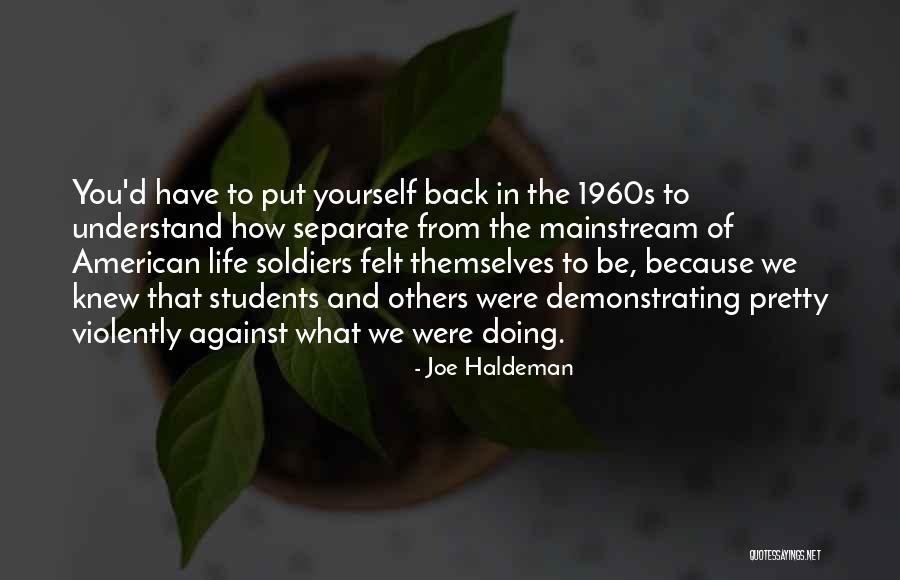
You'd have to put yourself back in the 1960s to understand how separate from the mainstream of American life soldiers felt themselves to be, because we knew that students and others were demonstrating pretty violently against what we were doing. — Joe Haldeman
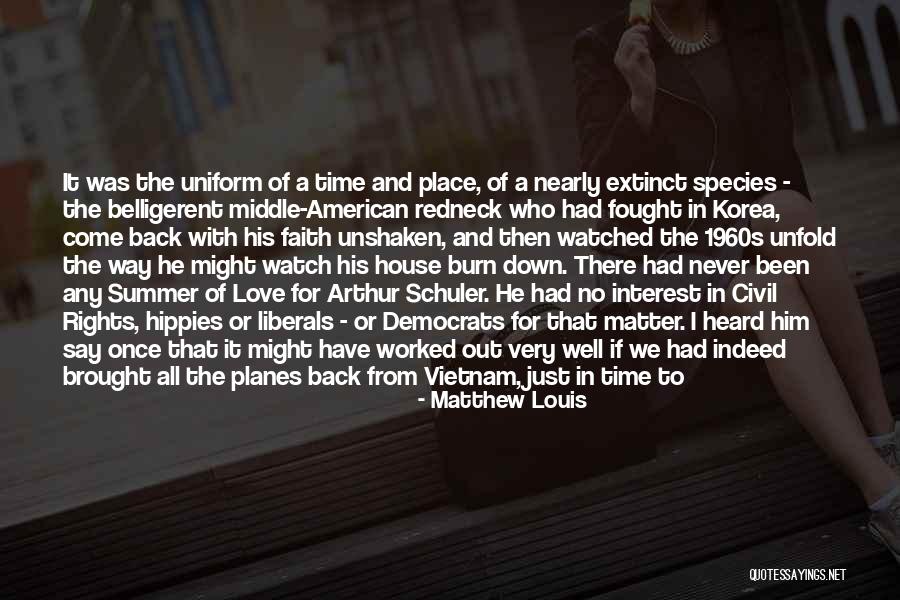
It was the uniform of a time and place, of a nearly extinct species - the belligerent middle-American redneck who had fought in Korea, come back with his faith unshaken, and then watched the 1960s unfold the way he might watch his house burn down. There had never been any Summer of Love for Arthur Schuler. He had no interest in Civil Rights, hippies or liberals - or Democrats for that matter. I heard him say once that it might have worked out very well if we had indeed brought all the planes back from Vietnam, just in time to napalm the Woodstock festival. But the man had lived. He had been an orphan of the Great Depression and seen the country and the world. He had made his way, been a barroom fighter and - he hinted - a womanizer at some distant point in the twentieth century, and had come away with an instinct for life, for the things that people do and their base and predictable motivations. We — Matthew Louis
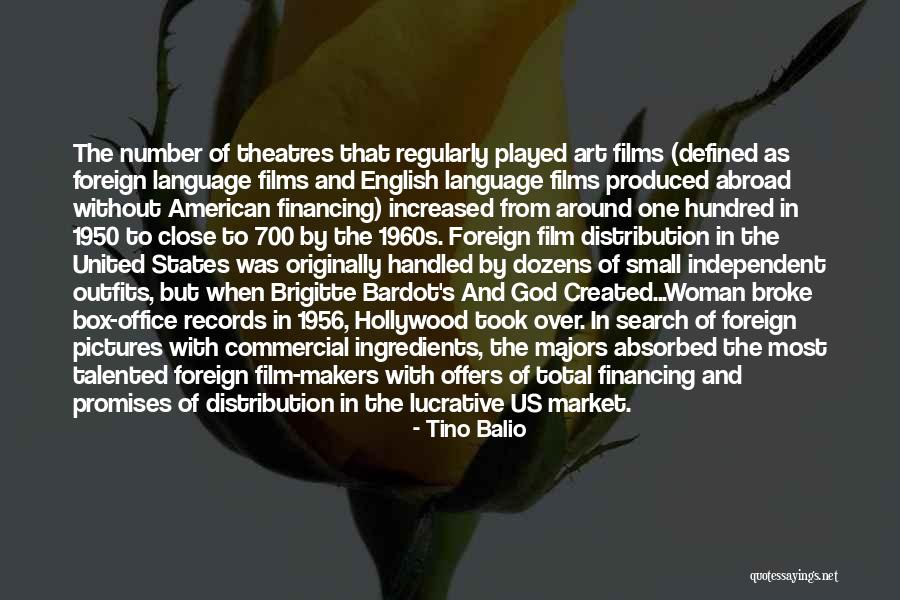
The number of theatres that regularly played art films (defined as foreign language films and English language films produced abroad without American financing) increased from around one hundred in 1950 to close to 700 by the 1960s. Foreign film distribution in the United States was originally handled by dozens of small independent outfits, but when Brigitte Bardot's And God Created...Woman broke box-office records in 1956, Hollywood took over. In search of foreign pictures with commercial ingredients, the majors absorbed the most talented foreign film-makers with offers of total financing and promises of distribution in the lucrative US market. — Tino Balio
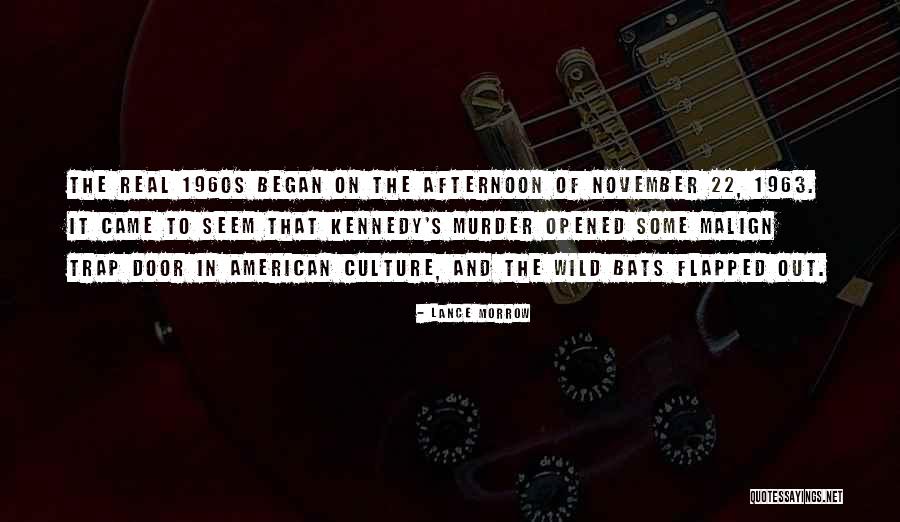
The real 1960s began on the afternoon of November 22, 1963. It came to seem that Kennedy's murder opened some malign trap door in American culture, and the wild bats flapped out. — Lance Morrow
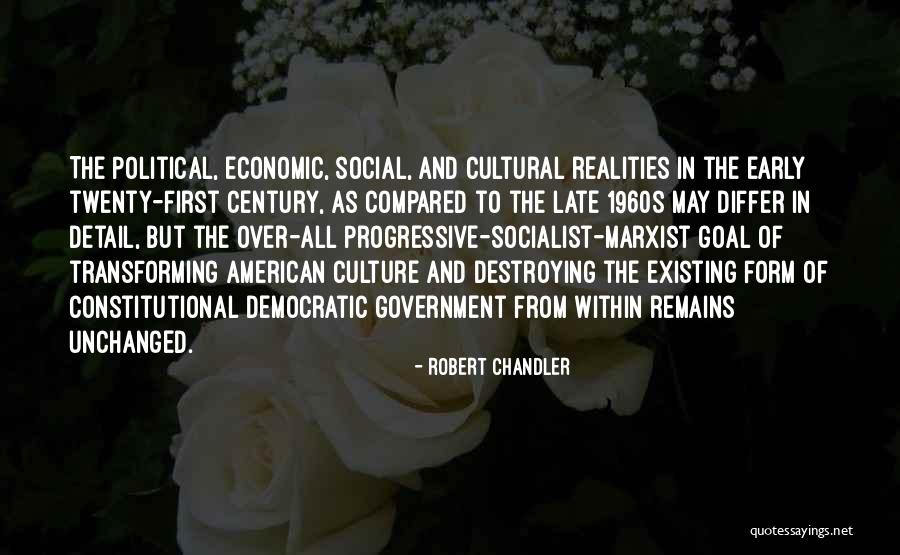
The political, economic, social, and cultural realities in the early twenty-first century, as compared to the late 1960s may differ in detail, but the over-all progressive-socialist-marxist goal of transforming American culture and destroying the existing form of constitutional democratic government from within remains unchanged. — Robert Chandler
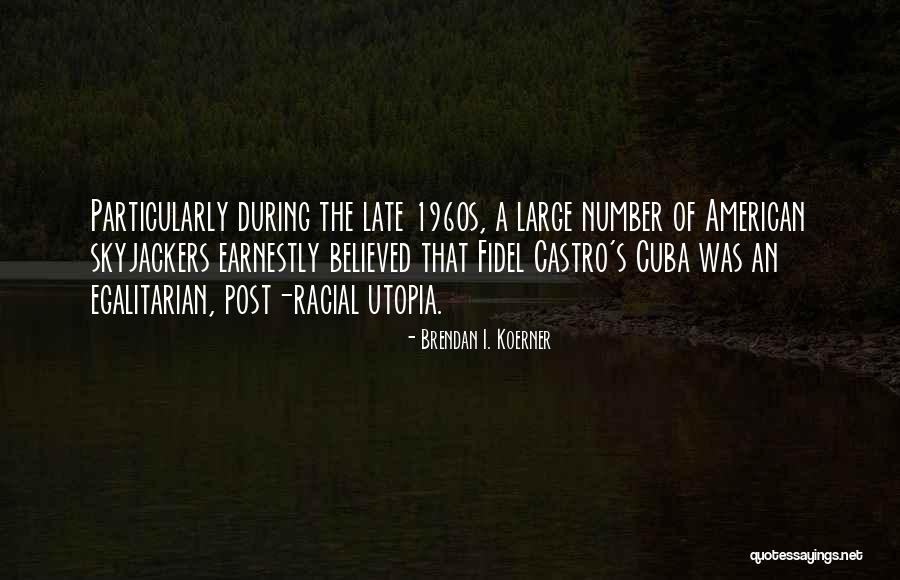
Particularly during the late 1960s, a large number of American skyjackers earnestly believed that Fidel Castro's Cuba was an egalitarian, post-racial utopia. — Brendan I. Koerner
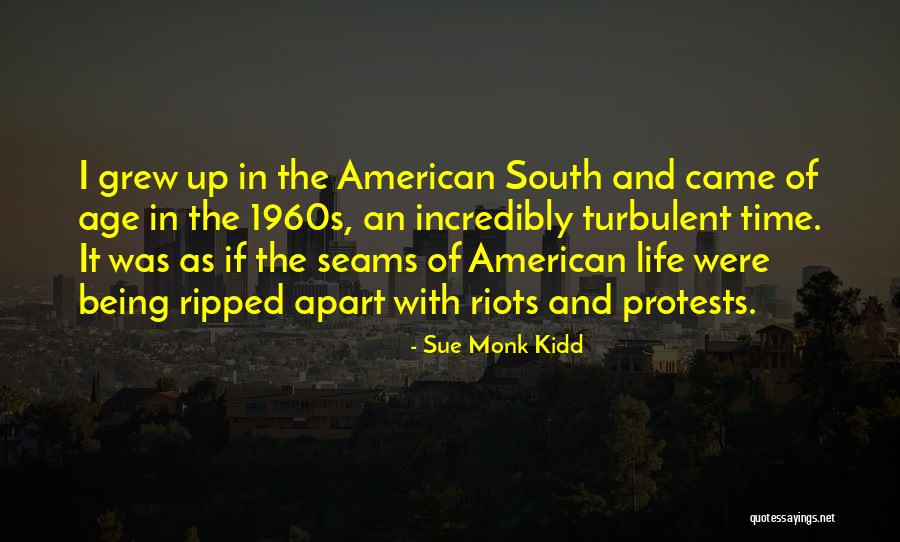
I grew up in the American South and came of age in the 1960s, an incredibly turbulent time. It was as if the seams of American life were being ripped apart with riots and protests. — Sue Monk Kidd

The weapons attacking her were a diverse mix: antiques such as American carbines, Czech-style machine guns, Japanese Type-38 rifles; newer weapons such as standard-issue People's Liberation Army rifles and submachine guns, stolen from the PLA after the publication of the "August Editorial"; and even a few Chinese dadao swords and spears. — Liu Cixin
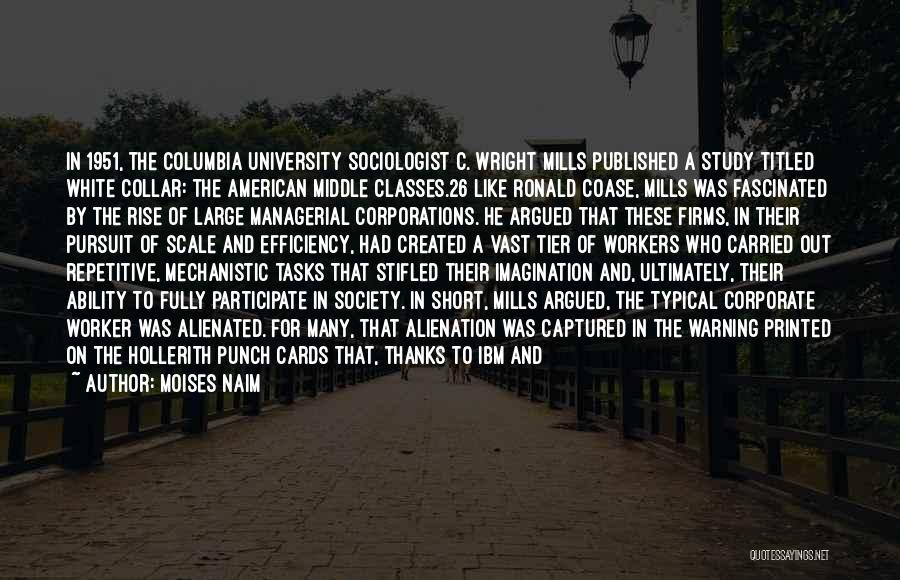
In 1951, the Columbia University sociologist C. Wright Mills published a study titled White Collar: The American Middle Classes.26 Like Ronald Coase, Mills was fascinated by the rise of large managerial corporations. He argued that these firms, in their pursuit of scale and efficiency, had created a vast tier of workers who carried out repetitive, mechanistic tasks that stifled their imagination and, ultimately, their ability to fully participate in society. In short, Mills argued, the typical corporate worker was alienated. For many, that alienation was captured in the warning printed on the Hollerith punch cards that, thanks to IBM and other data processing firms, became ubiquitous symbols and agents of bureaucratized life during the 1950s and 1960s: "Do Not Fold, Spindle, or Mutilate. — Moises Naim
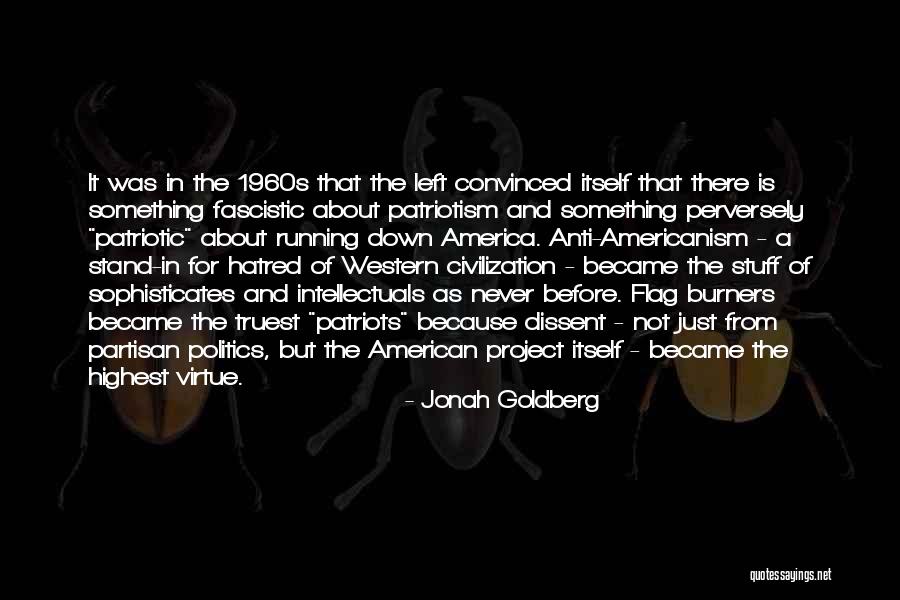
It was in the 1960s that the left convinced itself that there is something fascistic about patriotism and something perversely "patriotic" about running down America. Anti-Americanism - a stand-in for hatred of Western civilization - became the stuff of sophisticates and intellectuals as never before. Flag burners became the truest "patriots" because dissent - not just from partisan politics, but the American project itself - became the highest virtue. — Jonah Goldberg
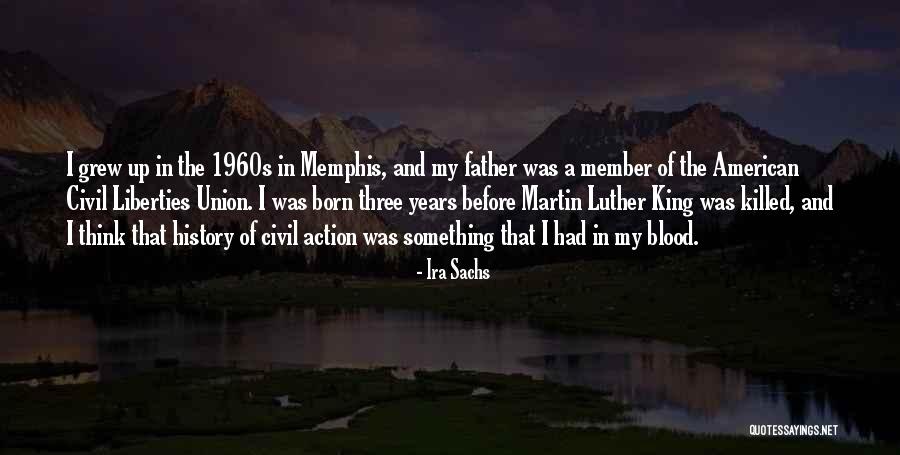
I grew up in the 1960s in Memphis, and my father was a member of the American Civil Liberties Union. I was born three years before Martin Luther King was killed, and I think that history of civil action was something that I had in my blood. — Ira Sachs
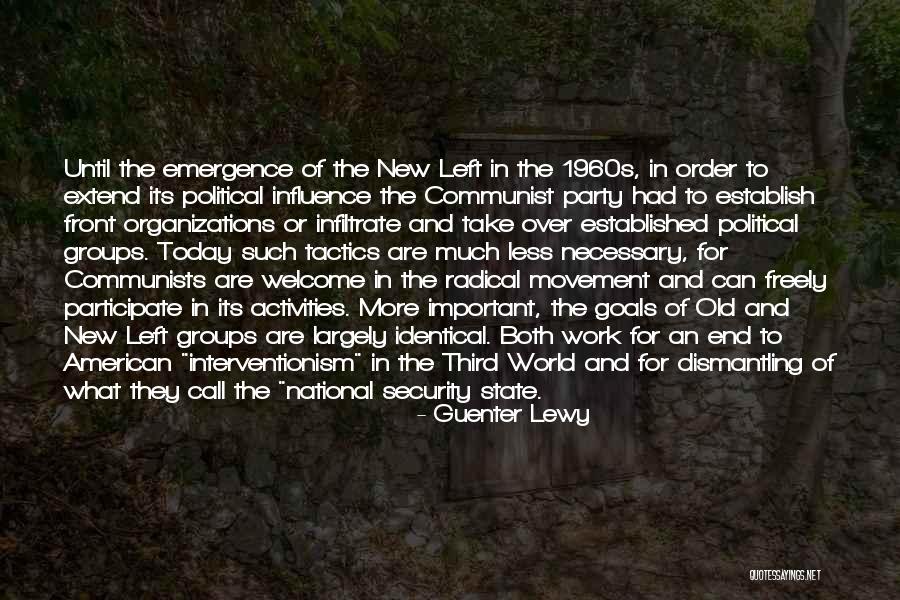
Until the emergence of the New Left in the 1960s, in order to extend its political influence the Communist party had to establish front organizations or infiltrate and take over established political groups. Today such tactics are much less necessary, for Communists are welcome in the radical movement and can freely participate in its activities. More important, the goals of Old and New Left groups are largely identical. Both work for an end to American "interventionism" in the Third World and for dismantling of what they call the "national security state. — Guenter Lewy
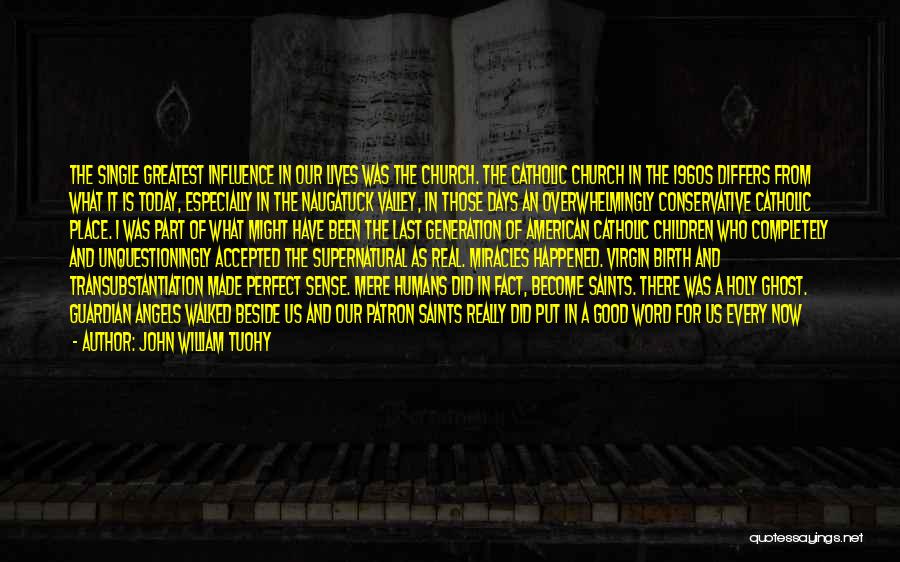
The single greatest influence in our lives was the church. The Catholic Church in the 1960s differs from what it is today, especially in the Naugatuck Valley, in those days an overwhelmingly conservative Catholic place.
I was part of what might have been the last generation of American Catholic children who completely and unquestioningly accepted the supernatural as real. Miracles happened. Virgin birth and transubstantiation made perfect sense. Mere humans did in fact, become saints. There was a Holy Ghost. Guardian angels walked beside us and our patron saints really did put in a good word for us every now and then. — John William Tuohy
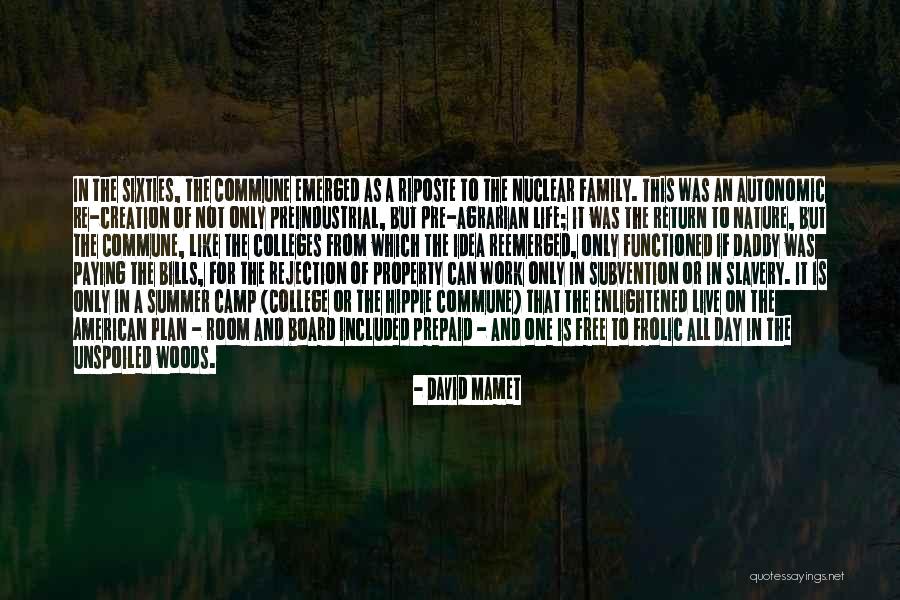
In the sixties, the Commune emerged as a riposte to the nuclear family. This was an autonomic re-creation of not only preindustrial, but pre-agrarian life; it was the Return to Nature, but the Commune, like the colleges from which the idea reemerged, only functioned if Daddy was paying the bills, for the rejection of property can work only in subvention or in slavery. It is only in a summer camp (College or the hippie commune) that the enlightened live on the American Plan - room and board included prepaid - and one is free to frolic all day in the unspoiled woods. — David Mamet

It's very important to me to be an American poet, a Jewish poet, a poet who came of age in the 1960s. — Edward Hirsch
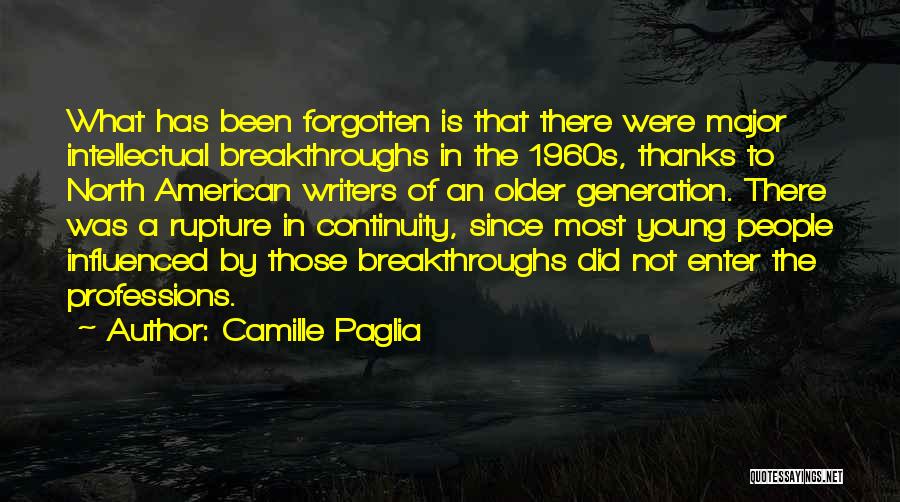
What has been forgotten is that there were major intellectual breakthroughs in the 1960s, thanks to North American writers of an older generation. There was a rupture in continuity, since most young people influenced by those breakthroughs did not enter the professions. — Camille Paglia
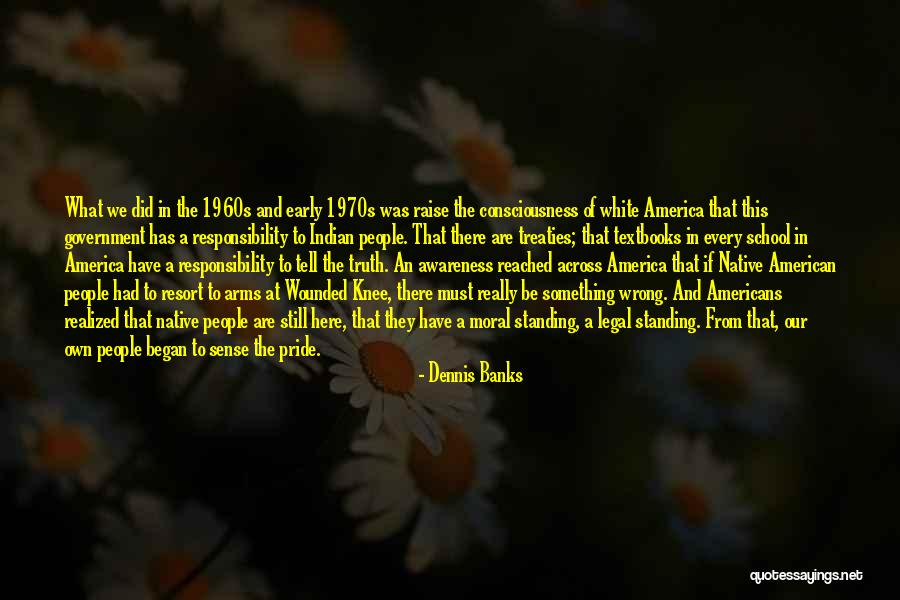
What we did in the 1960s and early 1970s was raise the consciousness of white America that this government has a responsibility to Indian people. That there are treaties; that textbooks in every school in America have a responsibility to tell the truth. An awareness reached across America that if Native American people had to resort to arms at Wounded Knee, there must really be something wrong. And Americans realized that native people are still here, that they have a moral standing, a legal standing. From that, our own people began to sense the pride. — Dennis Banks
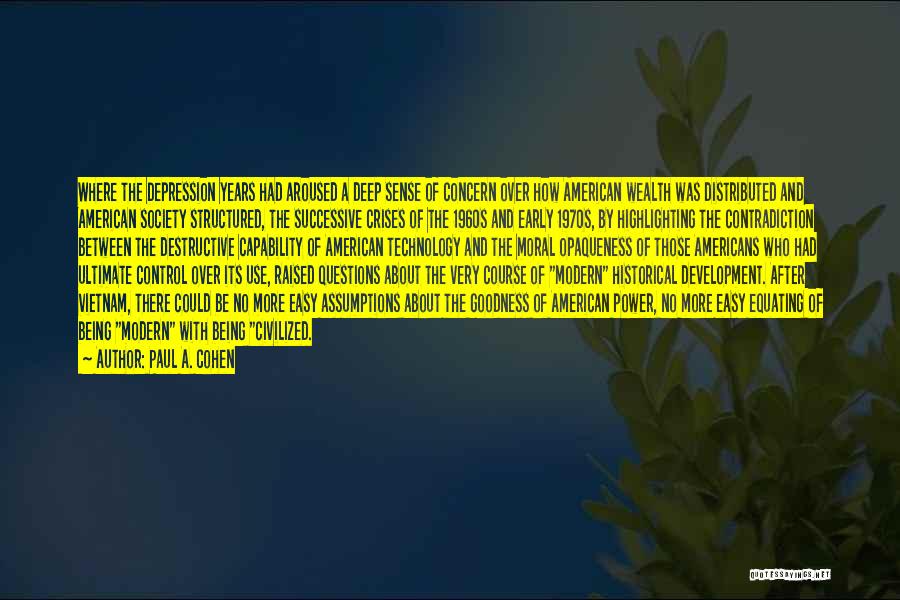
Where the Depression years had aroused a deep sense of concern over how American wealth was distributed and American society structured, the successive crises of the 1960s and early 1970s, by highlighting the contradiction between the destructive capability of American technology and the moral opaqueness of those Americans who had ultimate control over its use, raised questions about the very course of "modern" historical development. After Vietnam, there could be no more easy assumptions about the goodness of American power, no more easy equating of being "modern" with being "civilized. — Paul A. Cohen
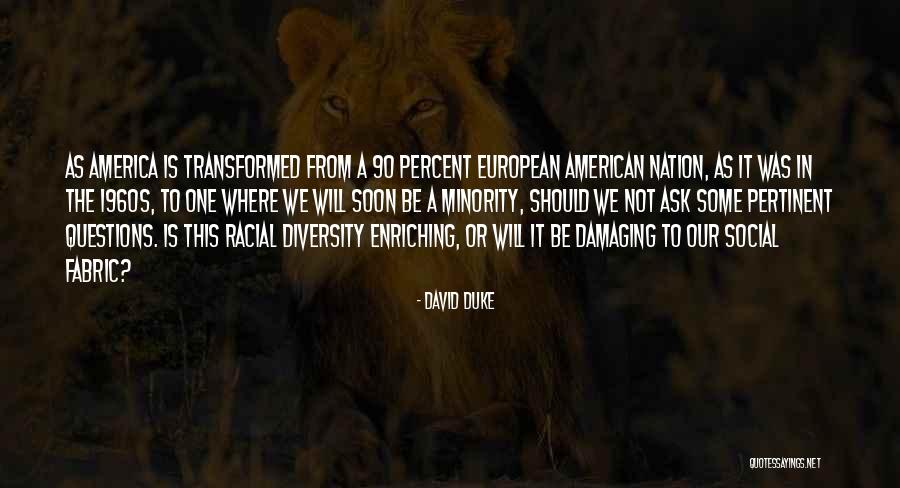
As America is transformed from a 90 percent European American nation, as it was in the 1960s, to one where we will soon be a minority, should we not ask some pertinent questions. Is this racial diversity enriching, or will it be damaging to our social fabric? — David Duke
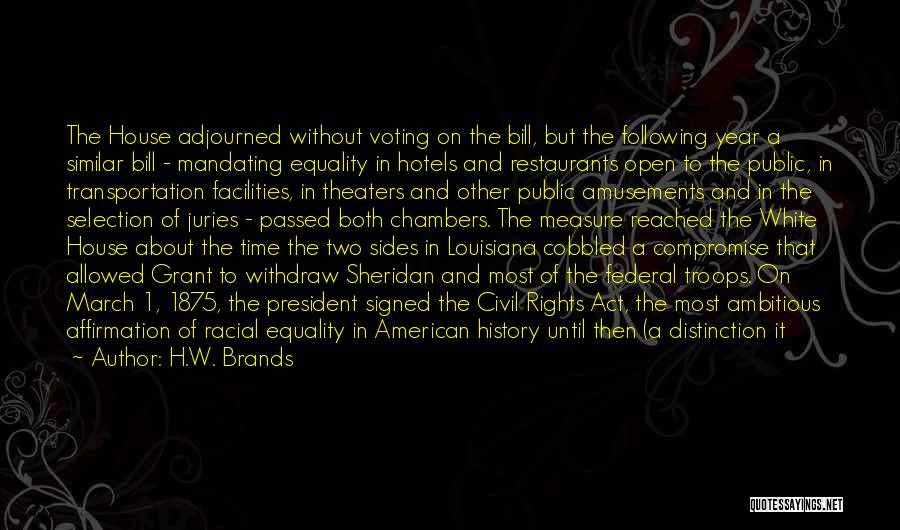
The House adjourned without voting on the bill, but the following year a similar bill - mandating equality in hotels and restaurants open to the public, in transportation facilities, in theaters and other public amusements and in the selection of juries - passed both chambers. The measure reached the White House about the time the two sides in Louisiana cobbled a compromise that allowed Grant to withdraw Sheridan and most of the federal troops. On March 1, 1875, the president signed the Civil Rights Act, the most ambitious affirmation of racial equality in American history until then (a distinction it would retain until the 1960s). — H.W. Brands
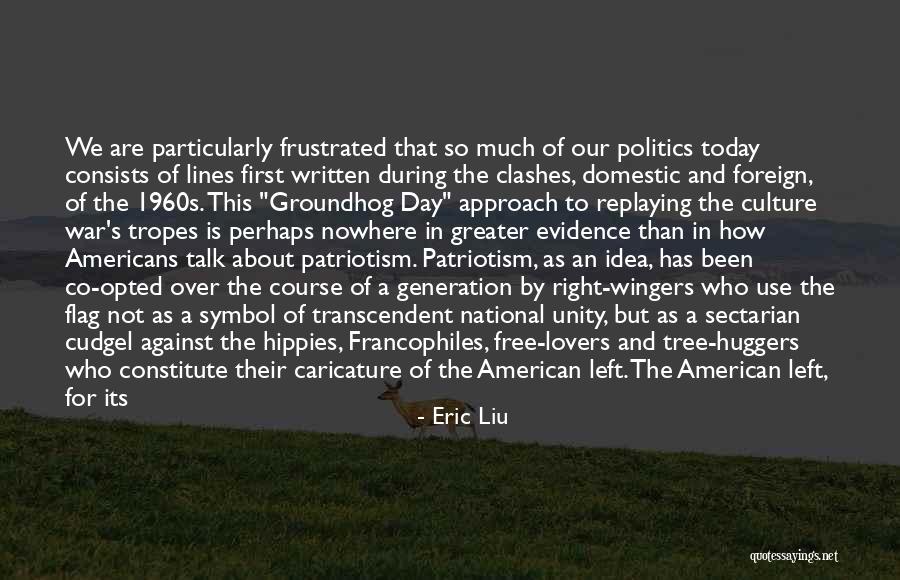
We are particularly frustrated that so much of our politics today consists of lines first written during the clashes, domestic and foreign, of the 1960s. This "Groundhog Day" approach to replaying the culture war's tropes is perhaps nowhere in greater evidence than in how Americans talk about patriotism. Patriotism, as an idea, has been co-opted over the course of a generation by right-wingers who use the flag not as a symbol of transcendent national unity, but as a sectarian cudgel against the hippies, Francophiles, free-lovers and tree-huggers who constitute their caricature of the American left. The American left, for its part, has been so beaten down by this star-spangled caricature that it has largely ceded the very notion of patriotism to the right. As a result, the first reaction of far too many progressives to any talk of patriotism is automatic, allergic recoil. Needless to say, this reaction simply tightens the screws of the right's imprisoning caricature. — Eric Liu
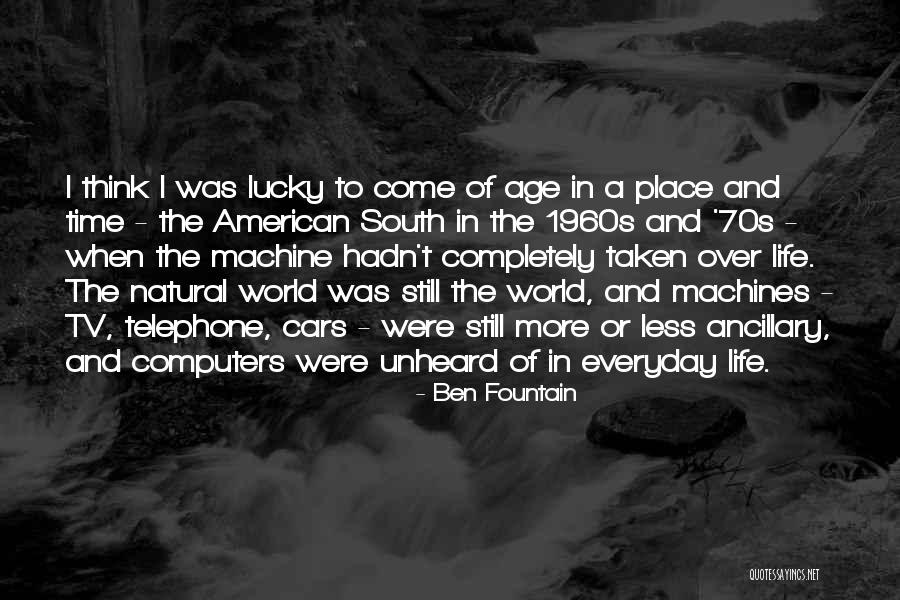
I think I was lucky to come of age in a place and time - the American South in the 1960s and '70s - when the machine hadn't completely taken over life. The natural world was still the world, and machines - TV, telephone, cars - were still more or less ancillary, and computers were unheard of in everyday life. — Ben Fountain
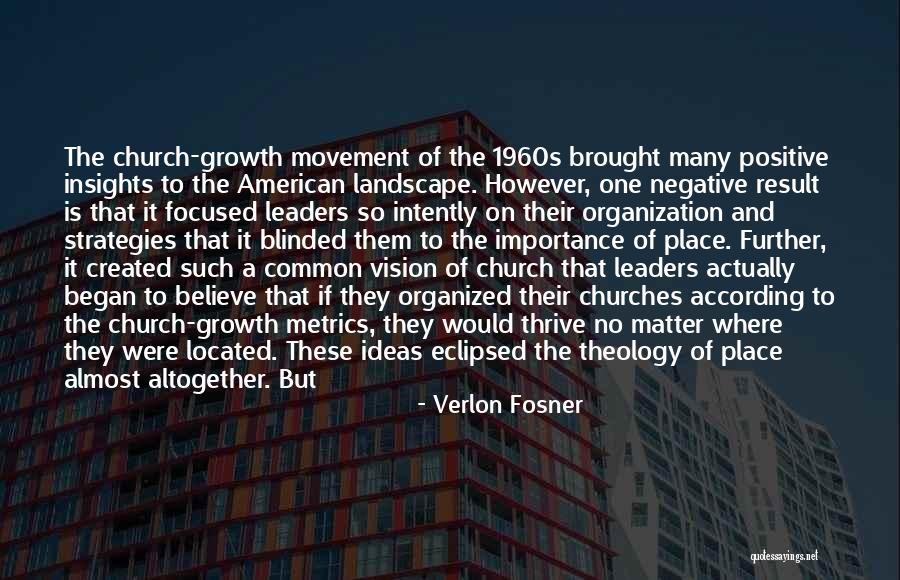
The church-growth movement of the 1960s brought many positive insights to the American landscape. However, one negative result is that it focused leaders so intently on their organization and strategies that it blinded them to the importance of place. Further, it created such a common vision of church that leaders actually began to believe that if they organized their churches according to the church-growth metrics, they would thrive no matter where they were located. These ideas eclipsed the theology of place almost altogether. But — Verlon Fosner
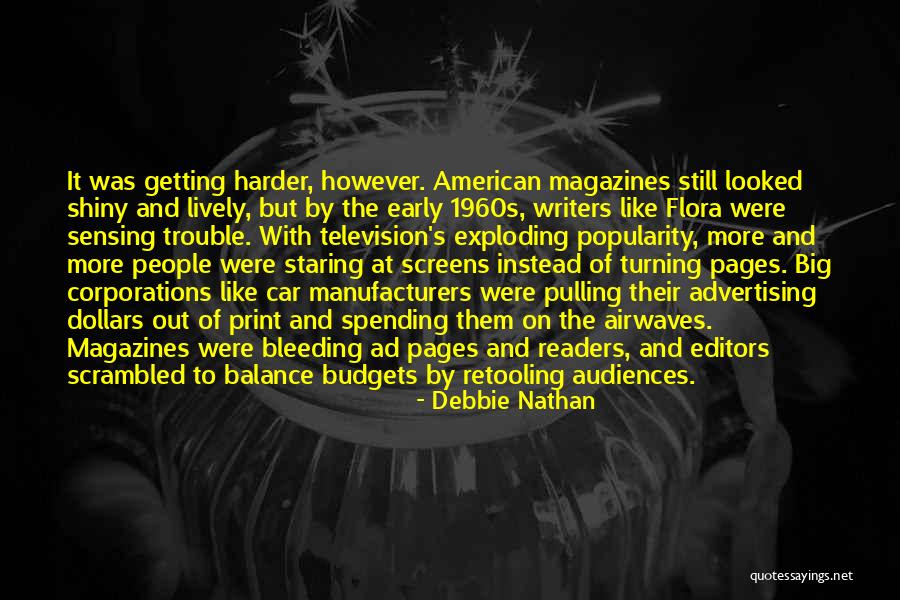
It was getting harder, however. American magazines still looked shiny and lively, but by the early 1960s, writers like Flora were sensing trouble. With television's exploding popularity, more and more people were staring at screens instead of turning pages. Big corporations like car manufacturers were pulling their advertising dollars out of print and spending them on the airwaves. Magazines were bleeding ad pages and readers, and editors scrambled to balance budgets by retooling audiences. — Debbie Nathan
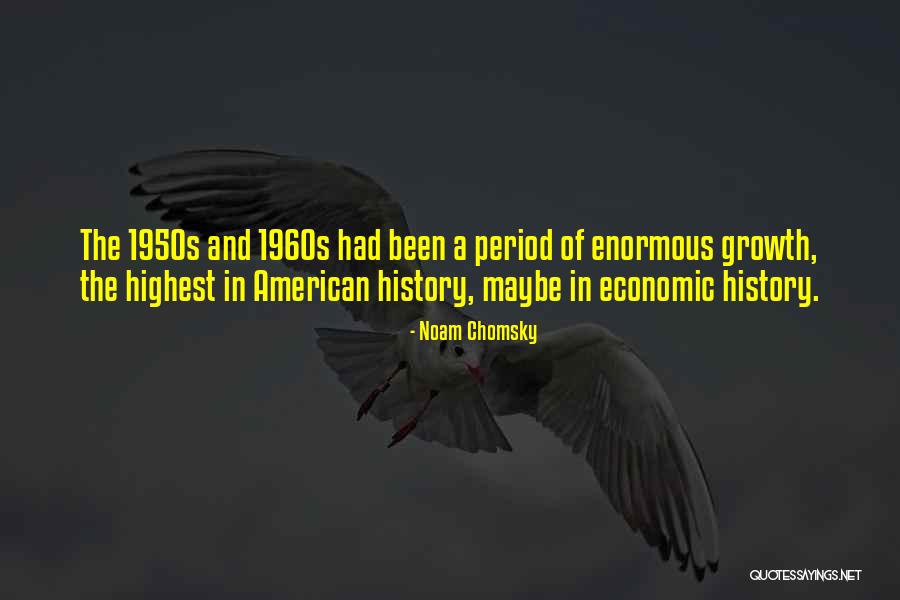
The 1950s and 1960s had been a period of enormous growth, the highest in American history, maybe in economic history. — Noam Chomsky
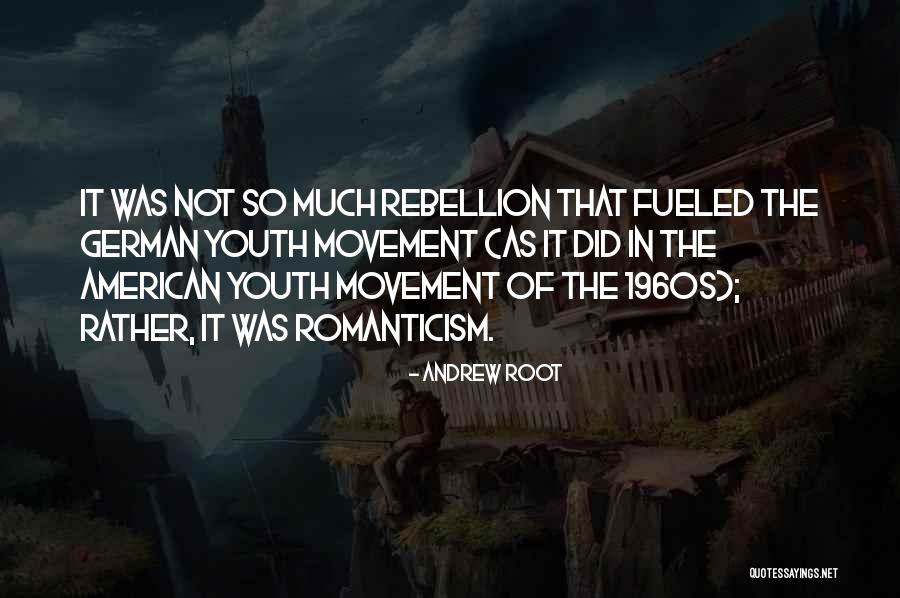
It was not so much rebellion that fueled the German youth movement (as it did in the American youth movement of the 1960s); rather, it was romanticism. — Andrew Root
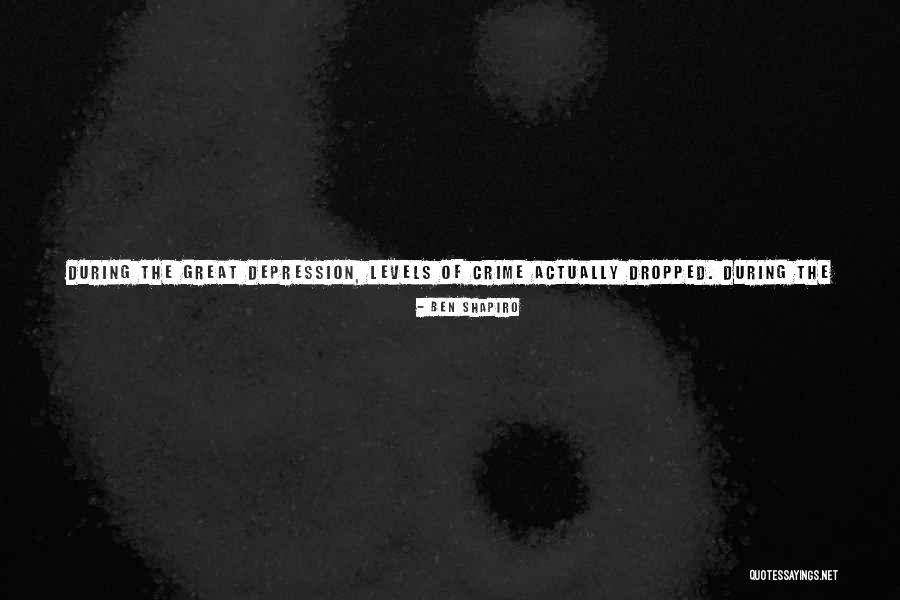
During the Great Depression, levels of crime actually dropped. During the 1920s, when life was free and easy, so was crime. During the 1930s, when the entire American economy fell into a government-owned alligator moat, crime was nearly non-existent. During the 1950s and 1960s, when the economy was excellent, crime rose again. — Ben Shapiro
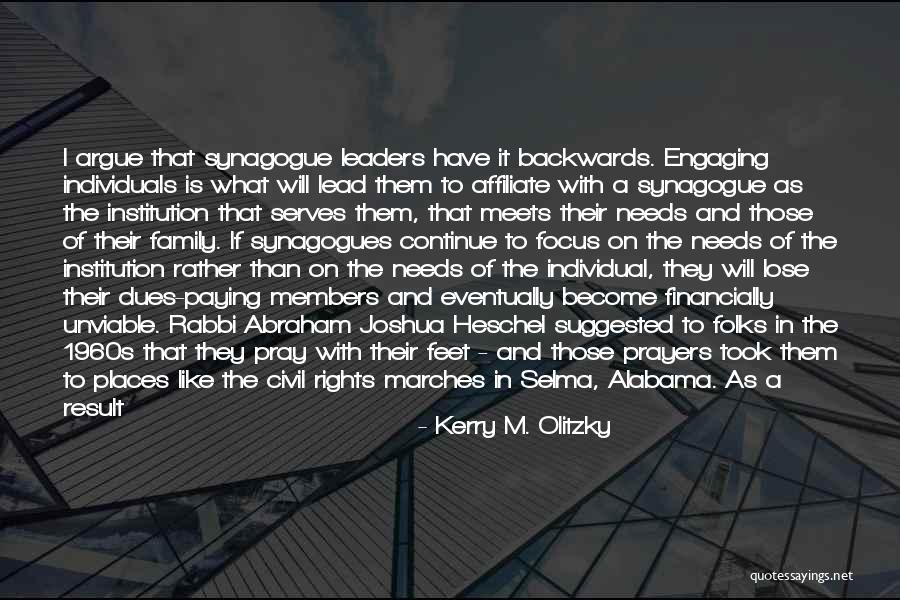
I argue that synagogue leaders have it backwards. Engaging individuals is what will lead them to affiliate with a synagogue as the institution that serves them, that meets their needs and those of their family. If synagogues continue to focus on the needs of the institution rather than on the needs of the individual, they will lose their dues-paying members and eventually become financially unviable. Rabbi Abraham Joshua Heschel suggested to folks in the 1960s that they pray with their feet - and those prayers took them to places like the civil rights marches in Selma, Alabama. As a result of the actions of Rabbi Heschel and the influence of American political culture, American Jews - like most Americans - have been taught to vote with — Kerry M. Olitzky
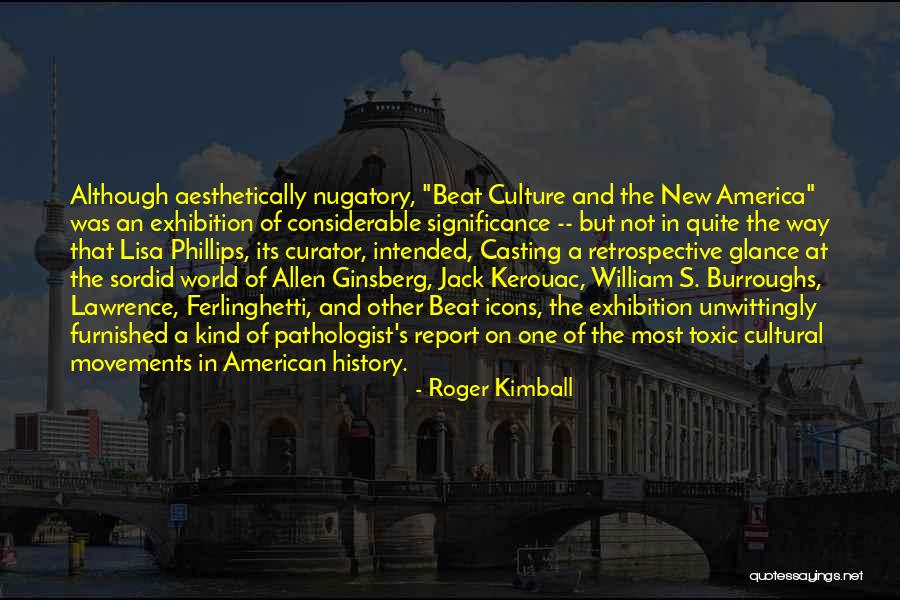
Although aesthetically nugatory, "Beat Culture and the New America" was an exhibition of considerable significance -- but not in quite the way that Lisa Phillips, its curator, intended, Casting a retrospective glance at the sordid world of Allen Ginsberg, Jack Kerouac, William S. Burroughs, Lawrence, Ferlinghetti, and other Beat icons, the exhibition unwittingly furnished a kind of pathologist's report on one of the most toxic cultural movements in American history. — Roger Kimball
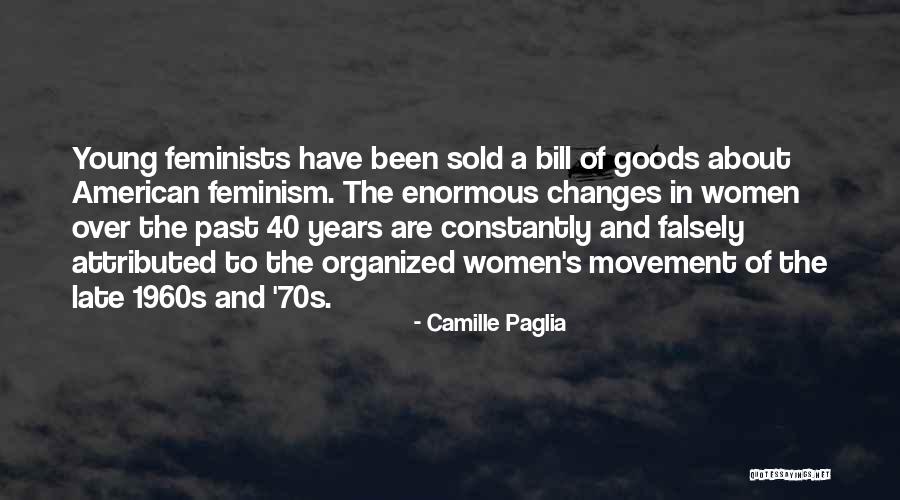
Young feminists have been sold a bill of goods about American feminism. The enormous changes in women over the past 40 years are constantly and falsely attributed to the organized women's movement of the late 1960s and '70s. — Camille Paglia
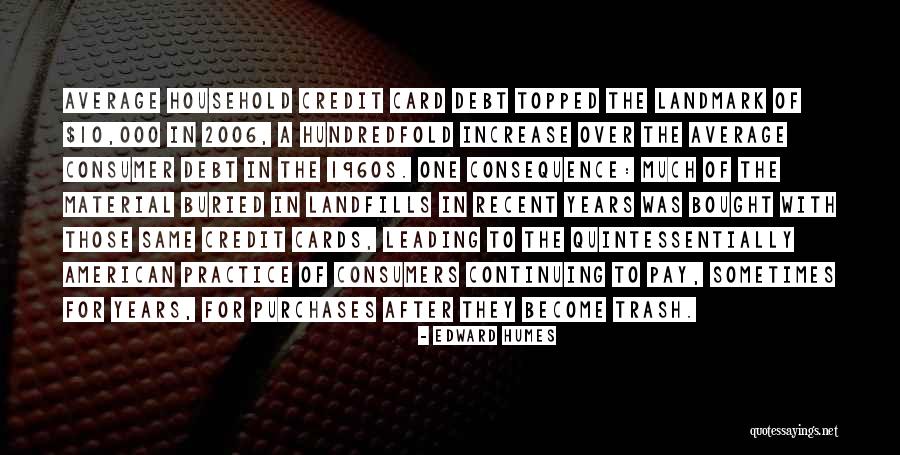
Average household credit card debt topped the landmark of $10,000 in 2006, a hundredfold increase over the average consumer debt in the 1960s. One consequence: Much of the material buried in landfills in recent years was bought with those same credit cards, leading to the quintessentially American practice of consumers continuing to pay, sometimes for years, for purchases after they become trash. — Edward Humes
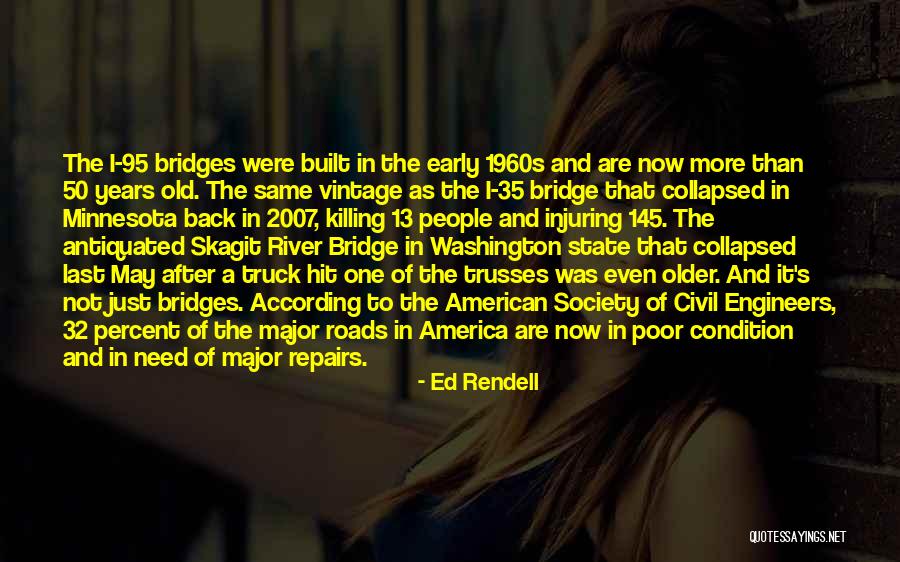
The I-95 bridges were built in the early 1960s and are now more than 50 years old. The same vintage as the I-35 bridge that collapsed in Minnesota back in 2007, killing 13 people and injuring 145. The antiquated Skagit River Bridge in Washington state that collapsed last May after a truck hit one of the trusses was even older. And it's not just bridges. According to the American Society of Civil Engineers, 32 percent of the major roads in America are now in poor condition and in need of major repairs. — Ed Rendell
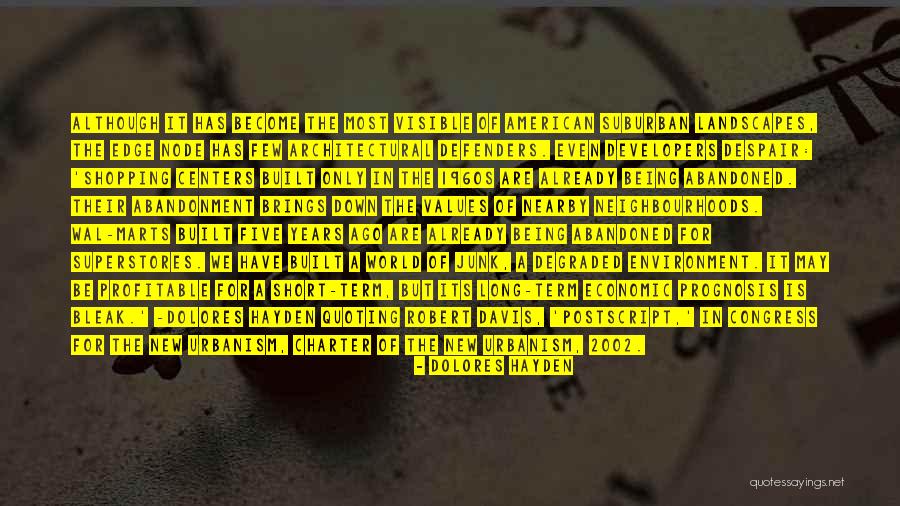
Although it has become the most visible of American suburban landscapes, the edge node has few architectural defenders. Even developers despair: 'Shopping centers built only in the 1960s are already being abandoned. Their abandonment brings down the values of nearby neighbourhoods. Wal-Marts built five years ago are already being abandoned for superstores. We have built a world of junk, a degraded environment. It may be profitable for a short-term, but its long-term economic prognosis is bleak.' -Dolores Hayden quoting Robert Davis, 'Postscript,' in Congress for the New Urbanism, Charter of the New Urbanism, 2002. — Dolores Hayden

In this book, you will encounter various interesting geometries that have been thought to hold the keys to the universe. Galileo Galilei (1564-1642) suggested that "Nature's great book is written in mathematical symbols." Johannes Kepler (1571-1630) modeled the solar system with Platonic solids such as the dodecahedron. In the 1960s, physicist Eugene Wigner (1902-1995) was impressed with the "unreasonable effectiveness of mathematics in the natural sciences." Large Lie groups, like E8-which is discussed in the entry "The Quest for Lie Group E8 (2007)"- may someday help us create a unified theory of physics. in 2007, Swedish American cosmologist Max Tegmark published both scientific and popular articles on the mathematical universe hypothesis, which states that our physical reality is a mathematical structure-in other words, our universe in not just described by mathematics-it is mathematics. — Clifford A. Pickover
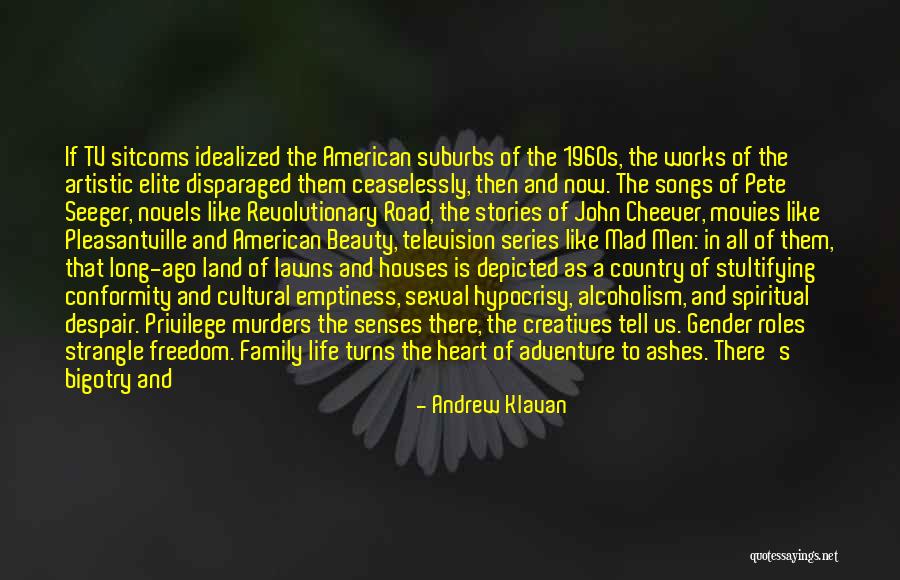
If TV sitcoms idealized the American suburbs of the 1960s, the works of the artistic elite disparaged them ceaselessly, then and now. The songs of Pete Seeger, novels like Revolutionary Road, the stories of John Cheever, movies like Pleasantville and American Beauty, television series like Mad Men: in all of them, that long-ago land of lawns and houses is depicted as a country of stultifying conformity and cultural emptiness, sexual hypocrisy, alcoholism, and spiritual despair. Privilege murders the senses there, the creatives tell us. Gender roles strangle freedom. Family life turns the heart of adventure to ashes. There's bigotry and gossip and dangerous liaisons behind every closed door. Oh, the soul, the human soul! In the suburbs of fiction, she is forever dying. But — Andrew Klavan
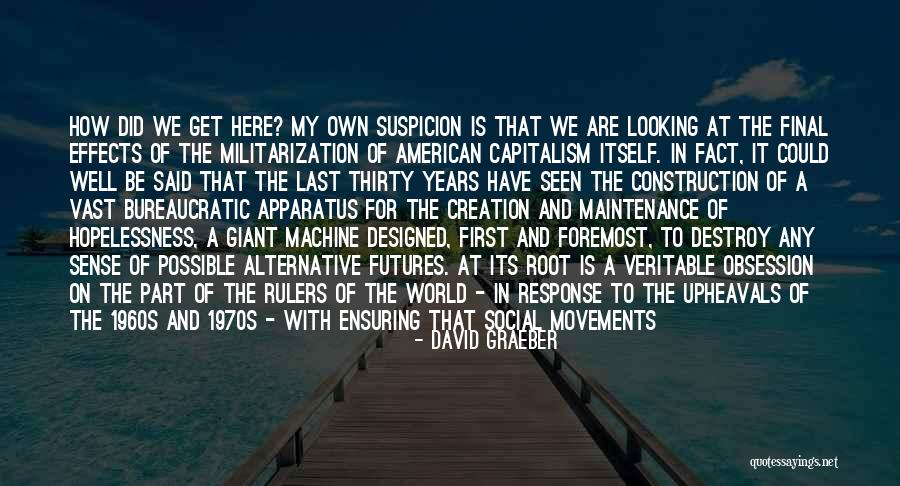
How did we get here? My own suspicion is that we are looking at the final effects of the militarization of American capitalism itself. In fact, it could well be said that the last thirty years have seen the construction of a vast bureaucratic apparatus for the creation and maintenance of hopelessness, a giant machine designed, first and foremost, to destroy any sense of possible alternative futures. At its root is a veritable obsession on the part of the rulers of the world - in response to the upheavals of the 1960s and 1970s - with ensuring that social movements cannot be seen to grow, flourish, or propose alternatives; that those who challenge existing power arrangements can never, under any circumstances, be perceived to win. — David Graeber





